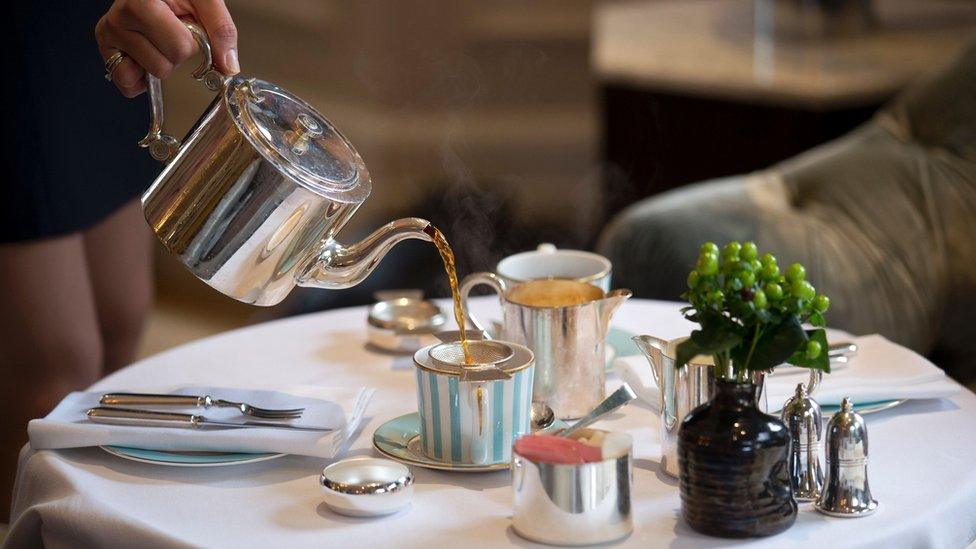UK inflation rate rises to 2.9%
- Published
- comments
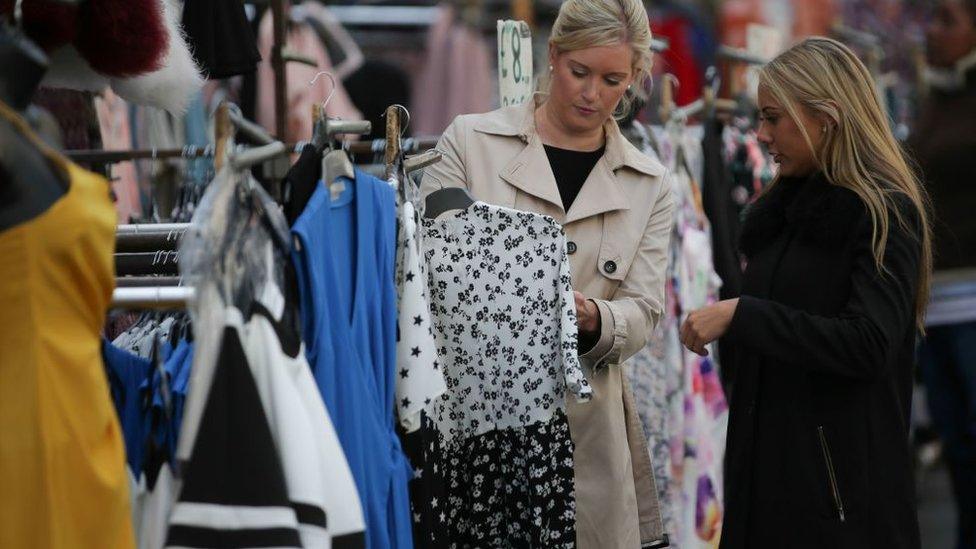
The UK's inflation rate climbed to its joint highest in more than five years in August as the price of petrol and clothing rose.
UK inflation measured by the Consumer Prices Index rose to 2.9% in August, up from 2.6% in July, figures show.
The fall in the value of sterling since the EU referendum continued to be a major impetus for rising prices, the Office for National Statistics said., external
But a rebound in the price of oil also had an impact, pushing up fuel prices.
The bigger-than-expected rise in inflation comes ahead of the Bank of England's next announcement on interest rates on Thursday.
However, economists said the Bank was still highly unlikely to raise rates at the meeting.
Rising clothing costs
According to the ONS, the prices of most goods climbed during August, largely because of rising import costs for retailers.
However, clothing and footwear prices had the biggest impact, climbing 4.6% year-on-year, their highest level since records began.
Petrol also pushed the overall cost of living higher, increasing 1.8p a litre to 115.7p during the month, while diesel gained 2p to 117.6p.
The TUC's general secretary, Frances O'Grady, said the "cost of living squeeze" was continuing, with rising inflation outpacing wages.
"The government needs to get a grip and get pay rising across the economy," she said.
The most recent wages data showed average weekly earnings rising at an annual pace of 2.1%. New figures on pay are due to be released on Wednesday.
Ian Stewart, chief economist at Deloitte, said: "It is pretty remarkable that, with inflation near 3% and unemployment at the lowest level in over 40 years, we are not seeing much wage inflation."
August's inflation rate is far above the Bank of England's target of 2%. The Bank has said it expects inflation to reach 3% in October, but start to ease early in 2018.
Paul Hollingsworth, UK economist at Capital Economics, said the latest figures were likely to provide "further ammunition" to those members of the Bank's rate-setting Monetary Policy Committee who favour an earlier rise in interest rates.
"However, we don't think the rise in CPI inflation has much further to run," he added.
"Indeed, we expect it to peak at 3.1% in October, before dropping back next year as the impact of the pound's fall starts to fade."
Samuel Tombs, chief UK economist at Pantheon Macroeconomics, added: "We still think the chances of a rate rise this year are remote.
"Domestically-generated inflation is subdued, inflation expectations have remained well-anchored and GDP growth is too weak to warrant higher rates."
The ONS's preferred measure of inflation CPIH - which includes owner-occupiers' housing costs - rose to 2.7% last month from 2.6% in July.
The Retail Prices Index (RPI) measure of inflation rose to 3.9% in August from 3.6%.

Analysis: Andy Verity, BBC economics correspondent
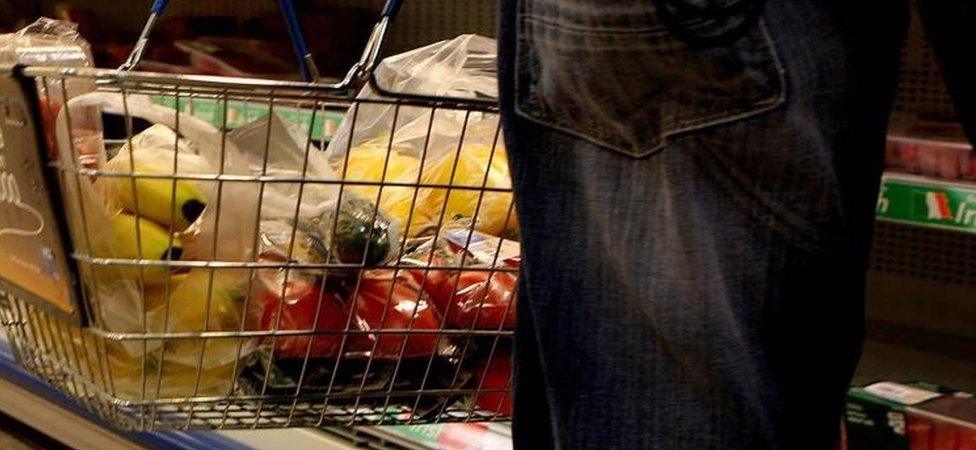
Here's a few details from the inflation numbers. Coffee - up 5.1%. Petrol - up 5.1%. Clothing - up 5.1%. Oils and fats (including butter) - up 5.9%. Electricity - up 9%. Then there is the price of fish - up 9.6%.
Now of course to get the average rise in the cost of living you have to lump in those moves with other items falling in price (air fares, second-hand cars, toys and games) to get the average of 2.9%. But even that number is worrying when wages at the last count could only manage a rise of 2.1%.
August's inflation rate of 2.9% equals the peak rate seen in May. The market had expected 2.8% - so it did have an effect. On the currency markets, traders pushed up the value of the pound to $1.327 - its highest in months.
Before the figures came out, traders in the City had anticipated a rise in interest rates by next May. Now they're betting it's more likely to happen next February. Nevertheless, that would only take the official rate back to where it was before the post-referendum emergency cut last August and further rate rises could take years. That's because the economy is growing only modestly.
If only it were growing as fast as prices.

Does your job pay less than it did five years ago?
Wage stagnation and an ever increasing cost of living have left many people feeling poorer over the last few years.
But for some workers skills shortages mean pay has shot up. Try out our calculator, then scroll down to find out the jobs market's winners and losers...
- Published12 September 2017
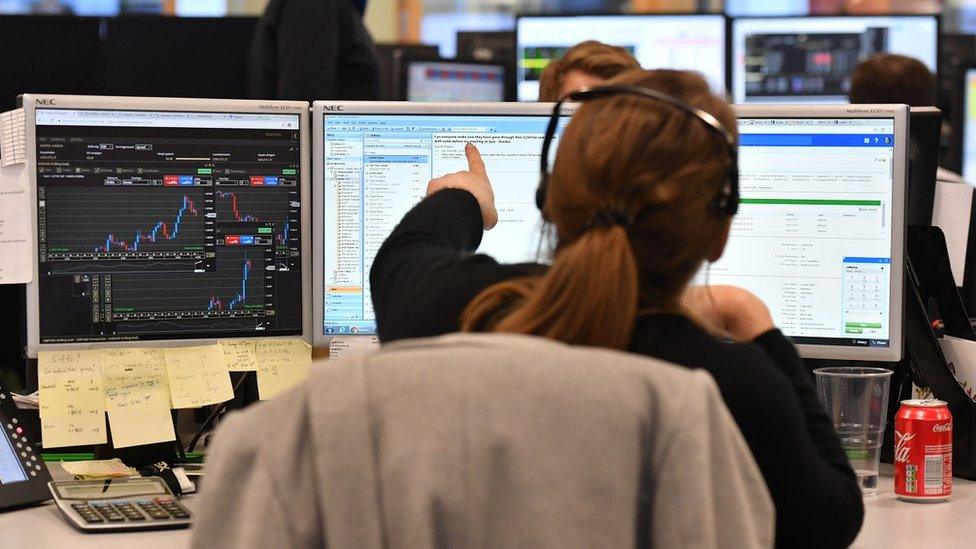
- Published12 September 2017
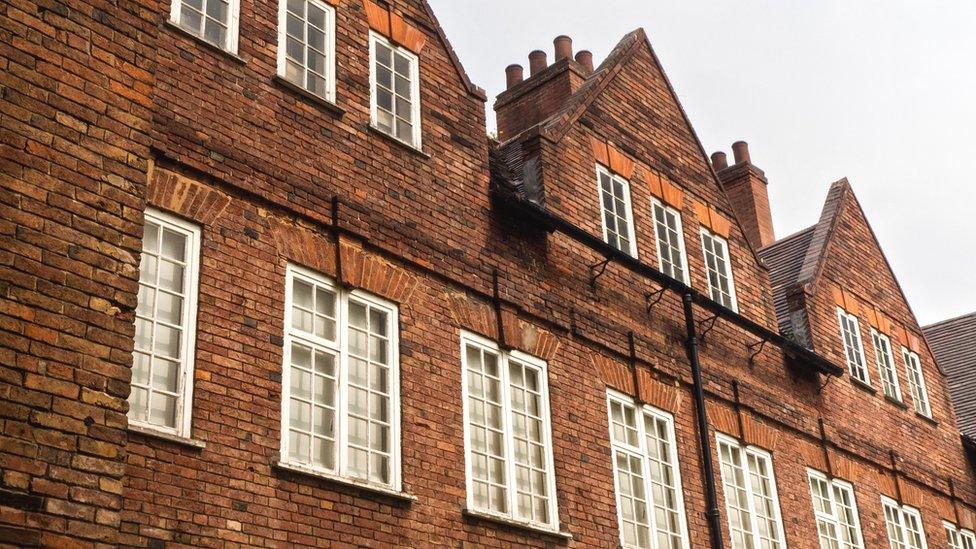
- Published8 September 2017
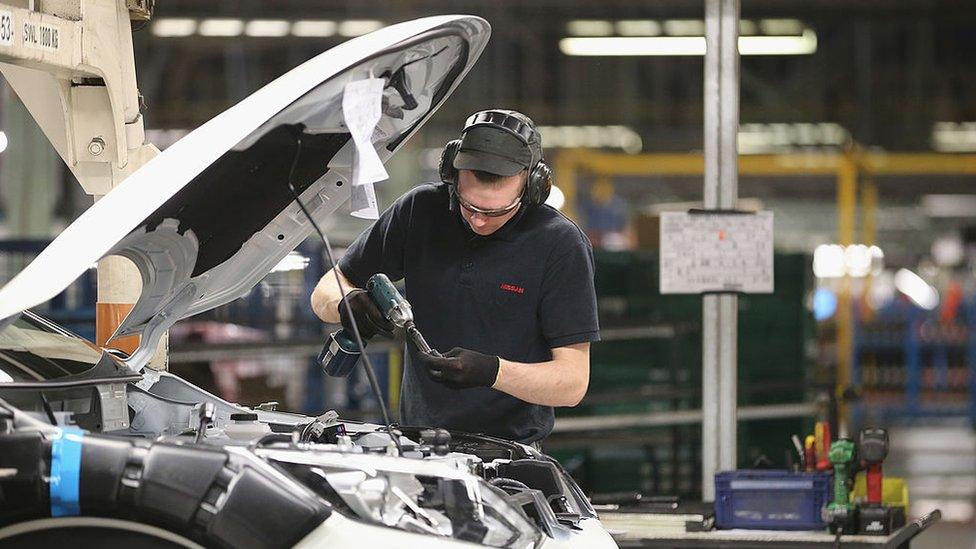
- Published5 September 2017
